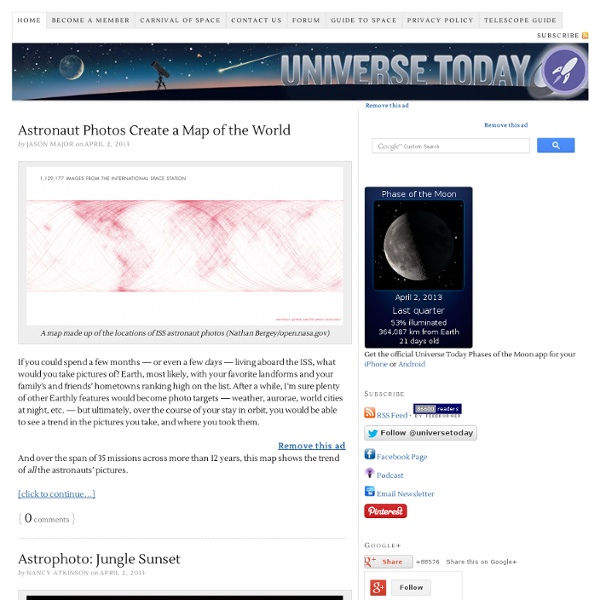Beyond 2012: Why the World Didn't End
Beyond 2012: Why the World Didn't End If you're reading this story, it means the world didn't end on Dec. 21, 2012. Despite reports of an ancient Maya prophecy, a mysterious planet on a collision course with Earth, or a reverse in Earth's rotation, we're still here. The Mayan connection "was a misconception from the very beginning," says Dr. John Carlson, director of the Center for Archaeoastronomy. "The Maya calendar did not end on Dec. 21, 2012, and there were no Maya prophecies foretelling the end of the world on that date." › Read More About the Mayans Video: Why The World Didn't End Yesterday For years leading up to the supposed apocalypse, NASA scientists worked to dispel the myths and answer questions on a host of 2012 topics: Question (Q): Are there any threats to the Earth in 2012? Answer (A):The world will not end in 2012. Q: What is the origin of the prediction that the world will end in 2012? Q: Does the Mayan calendar end in December 2012? A: Absolutely not.
Macrocosme, L'Univers en images
50 Years of Incredible Space Images From the European Southern Observatory | Wired Science
This week marks the 50th anniversary of one of the world’s leading astronomical institutions, the European Southern Observatory. In honor of ESO’s birthday, we take a look at some of its most stunning shots of the night sky, amazing objects in space, and the organization's beautiful telescope facilities. ESO started when astronomers from five European countries – Belgium, France, Germany, the Netherlands, and Sweden – came together on Oct. 5, 1962 to build a telescope in the Southern Hemisphere. Having a large telescope south of the equator gave these member states access to unprecedented clear skies and celestial objects that simply can’t be seen from the Northern Hemisphere, such as the Magellanic Clouds. Over the decades, many more countries have joined, including Denmark, Switzerland, Italy, Portugal, the United Kingdom, Finland, Spain, the Czech Republic, Austria, and, in 2010, Brazil, which became the first non-European state to join. Above: Image: ESO/J.
Skypix, l'actualité du ciel
DeepAstronomy.com
Ca se passe là haut...
collect space space history and space artifacts news
Long before the first Instagram from space, the first check-in from orbit, or even the first astronaut's tweet, John Glenn sent an email to Bill Clinton. The reply it prompted was the very first email transmitted by a sitting U.S. president — it just happened to be to space. April 18, 2014SpaceX launches science-packed Dragon capsule on space station supply run A commercial cargo spacecraft loaded with more than two tons of scientific experiments and equipment lifted off for the International Space Station on April 18, after more than a month of delays. SpaceX's Dragon launched on a Falcon 9 rocket from Cape Canaveral. April 17, 2014John Houbolt, NASA engineer who fought for Apollo moon landing method, dies Were it not for John C. April 14, 2014NASA signs over historic Launch Pad 39A to SpaceX One of NASA's most historic launch pads is now under new management. April 9, 2014Houston, we've got an auction: Apollo 13 astronaut's mementos to be sold
[Les Tribulations d'un Astronome]



